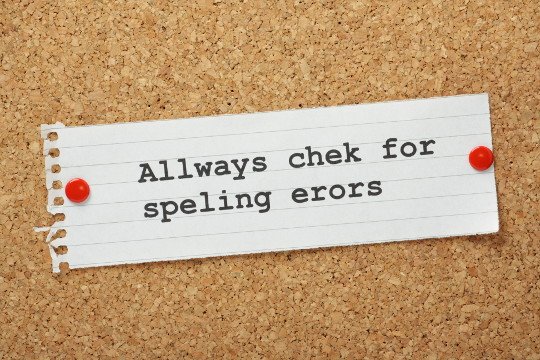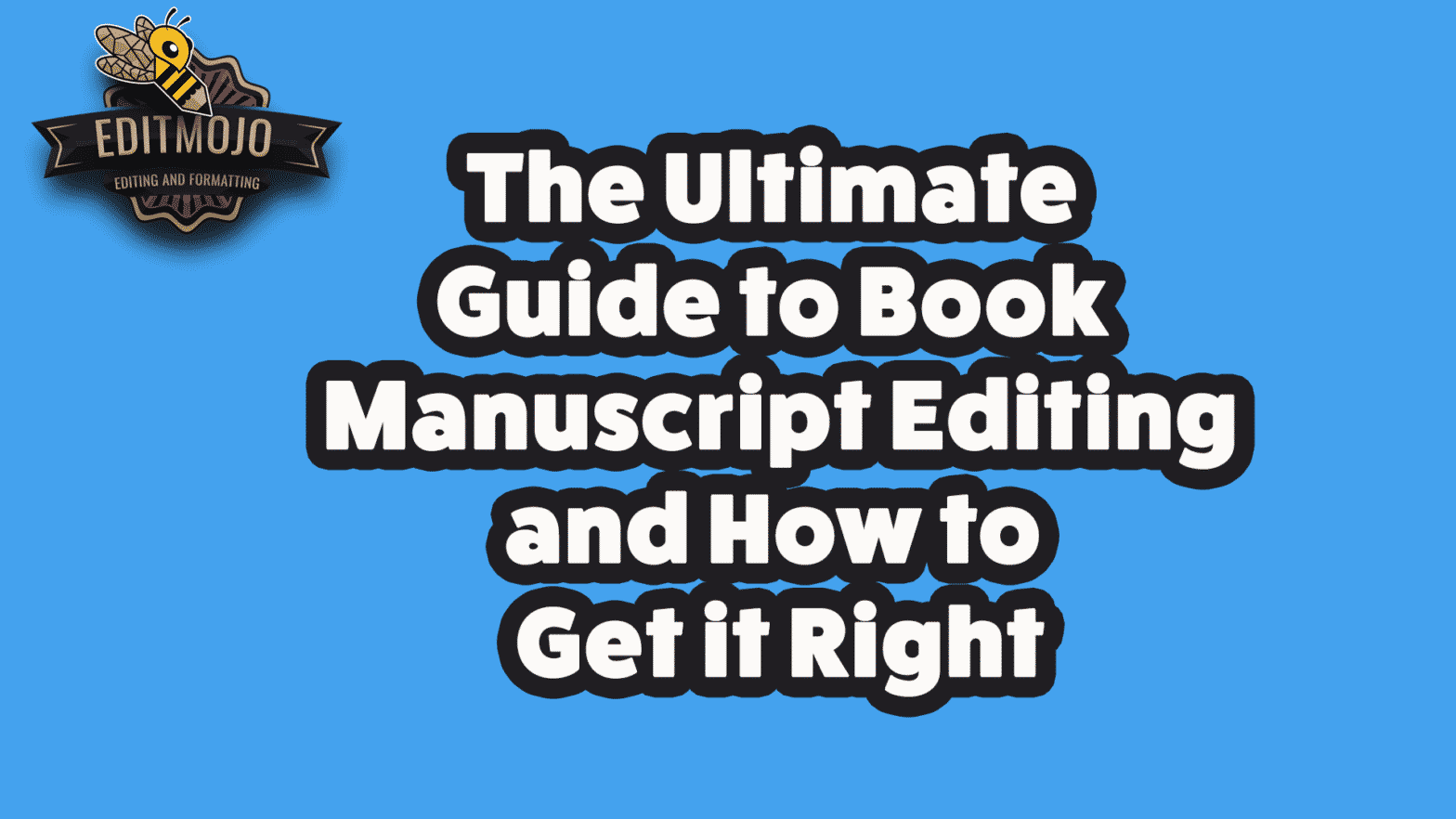Book manuscript editing is the most important service you will get on your self-publishing adventure. It ensures the future success of your book and that readers will your book at its full potential.
How Do You Get The Most Out of Your Manuscript Editing Service?
A manuscript editing service aims to help you edit your manuscript with the reader in mind. It can be a tedious process for some authors, but it’s worth the time and effort. There are many reasons that one might need to edit their work. For example, you could be looking to get an agent or publisher or make your work more readable before self-publishing it.
You should do several things when preparing for an editing service, specifically ask your editor what they prefer in terms of communication and final deliverables, copyright permissions, formatting instructions, etc. Before sending your manuscript off, be sure that it’s typo-free and includes all necessary endnotes/references. You want to send the editor a clean document to focus their time looking for hard-to-spot issues.
GOAL
Our goal is to help you publish the best version of your book!
Finding the Best Manuscript Editor for Your Project (Book Manuscript Editing)
To get your manuscript ready for publishing, you need to work with a professional editor. This person will review and edit your manuscript, making necessary changes and providing constructive critique and suggestions.
The actual process of editing a manuscript can vary quite a bit depending on the author’s needs and the editor’s style. Therefore, if you’re looking for an editor, it’s essential to be clear about what you want from the editing process before contacting potential candidates. This could be in terms of cost, time commitment, or any other preferences that are important to you.
You need to know how much time your budget allows for editing services, how many edits per round are included in this fee, what type of feedback do they prefer from authors (line edits? content feedback? both?).
Manuscript editing service, book editing service, and how to find a good editor
Editing a manuscript is not an easy task. Writers need to be open to the editor’s suggestions and criticism, which they may find harsh sometimes. However, they also need to remember that they are paying for the editor’s services and have to tolerate constructive criticism.
In the past, editors would rely on their intuition when editing a manuscript. Nowadays, most editors use a range of editing tools such as Grammarly or ProWritingAid to check the grammar and spelling mistakes in a document.
What is the Role of a Book Manuscript Editor?
The role of an editor is to improve the quality of a book by making sure it has a good structure, style, and flow. In addition, editors check for spelling errors and grammar mistakes. They also make sure that the story is consistent with the genre it belongs to. They give feedback on the manuscript that can be incorporated into future drafts.
Editors are often involved in the entire publishing process, from manuscript review to copyediting, proofreading, production planning and marketing support. The first step would be to read through manuscripts or proposals sent by authors or publishers. Once this has been completed, editors will provide feedback on their thoughts about these manuscripts with suggestions on how they should be edited before being sent back to the author or publisher for revision.
Why Editing Matters and Why You Should Invest in an Editor
Editing always takes a backseat to other aspects of content production. However, it is essential to know that editing improves the quality of your writing and helps you get content published faster.
This article will discuss why editing matters and why you should invest in an editor.

Why is Book Manuscript Editing Important?
Manuscript editing services are important in the publishing industry. However, few people know that there’s a difference between copy editors and manuscript editors. Copy editors edit text-heavy manuscripts like novels or textbooks. Manuscript editors edit long forms like books or research papers with great detail.
The scope of manuscript editing is much narrower than what copy editing has to cover; hence, its requirement is less in terms of manpower and time. The purpose of a manuscript editor is to review a document for content, grammar and punctuation errors before publishing it.
These days, manuscript editing can be done by a single person within a shorter period due to tools such as AutoCrit’s intelligent text analysis software, which automatically check grammar and spelling errors in your work
How to Pay for a Manuscript Editing Service and What to Expect From Them
The manuscript editing service is a very important factor for any writer, as it is the only thing that can make a writer’s manuscript perfect. These services can help authors make sure that their manuscripts are in the best shape possible before they are published to the world.
Paying for these services can be difficult for some authors because they don’t know what to expect from them and how much to pay. This article will take you through all of your options for paying for manuscript editing services and what you should expect from them.
To summarize, here are the factors that play into pricing: what kind of editing service you require, how many words your manuscript is, and if you want someone to edit your whole work or just parts of it.
How Long Does it Take to Edit a manuscript?
Editing a manuscript takes time. The manuscript needs to be returned to the writer for revisions and then go back to the editor for some more changes.
For those editing as a side gig, this can be an exhausting process. Those who edit as their main gig are more about the work, less about the money and time spent.
While some writers can make edits on their own, others need help with their grammar and spelling errors and it takes time for editors to improve sentence structure or fix plot holes.
This is why writers should not hesitate to ask for help with editing from an editor or beta reader before publishing a novel.
How To Find The Best Book Editor For Your Project And Save Money Along The Way
People who write books and blogs often hire editors to make sure that their writing is of quality and produce more content faster. However, finding the best editor for your project is not always easy. With all the options available, you might end up spending more than necessary on your editor, or worse, get an unreliable one.
This article will talk about how you can find the best book manuscript editor for you and save money during this process. We cover things like how to identify an expensive editor from a more affordable one and what you should look out for when deciding on a book editor.
What is a Book Manuscript?
A book manuscript is a document that contains the story and all the relevant information of a book. It is an important part of the publishing process because it enables an editor to review it and assess whether the book will be profitable.
To become a published author, you need to complete a book manuscript that is submitted to a publisher, who will review your work and decide whether or not they want to publish your manuscript.
Finding the Right Editor for Your Project
This article aims to give you a clear understanding of the role of an editor, the benefits they offer and how to find the right one for your project.
A content editor’s role is to ensure that any document they work on contains an effective organization with clear reasoning, accurate information and correct grammar. By using their skills in communication with others, editing can make any document more readable and easy to understand.
There are many reasons you would need a professional editor for your project. Some people write better than others, so they need somebody who can fix their mistakes. Others may not have time to edit their own work because of other commitments.
Common Pitfalls of Book Manuscript Editing and How to Avoid Them
Editing a book is often overlooked. Yet, it can make or break the quality of your work. If you are not careful, you will end up with an editorial nightmare. That could ruin your credibility as an author. Editing is all about making sure that your work is polished and professional, which is why it needs to be done before publication. Here are five common pitfalls of book editing and how to avoid them.
The first pitfall of book editing is that you may not catch all mistakes in the first go-round. It may take more than one edit to catch everything, so don’t feel defeated if you notice something afterward. The second pitfall is when people try to edit on their own because they lack the proper skillset.
How to Save Time and Money by Getting an Editor’s Help before Publishing your Book
In the age of self-publishing, editing is a forgotten profession. But it is one of the most important tasks for a writer. Because an unedited and poorly written book can be a disaster.
To save time and money while producing quality content, you should hire an editor to help you before publishing your book. This will ensure that your work has fewer errors. And it enables you to publish it faster than if you were editing on your own.
What are the Top Steps to Getting Your Book Ready for Manuscript Editing?
Steps to Getting Your Book Ready for Manuscript Editing:
1) Make sure your manuscript is error-free. Do not skip this step.
2) Hire a professional editor who is qualified and experienced in editing books in your genre.
3) Don’t be too hard on yourself when you read through the edits. The editor may make you rethink some of your ideas and change the order of chapters, but that’s okay!
4) Get feedback from beta readers or family and friends before publishing it to the world.
5) Consider hiring a professional book cover designer and/or copywriter if you’re not already proficient in these areas.
What is the Difference Between a Line Edit and Copy Edit
A line edit is more detailed and has more freedom with the author’s voice. Whereas a copy edit would not change the author’s voice, a line edit may. Both cover the same ground as far as sentence-level redundancy removal and improving flow and clarity. But a line edit can take it a step further with light rewriting if and when needed.
Start Planning For an Editor Now!
A common question asked by new authors is when should I start looking for an editor? As soon as possible. So get one lined up and ready to go. Collecting sample edits and finding the perfect editor that fits your budget can take weeks or months. Be ready to hit the ground running when you get through your 2nd or 3rd draft!
Book Manuscript Editing
Book Manuscript Editing
